Archive
-
26th November 2025
New Drug Candidates for the Treatment of Heart Failure
Researchers from North Rhine-Westphalia are working on a new therapeutic approach for the treatment of heart failure as part of the recently launched HI-FIVE project. They are developing active substances that specifically inhibit an important enzyme with the aim of closing gaps in the care of patients with heart failure.

-
26th September 2025
Microbiome Research: EU Network METAMIC 3 Is Looking for Doctoral Candidates
In the new EU network METAMIC 3, young scientists will be researching the role of microbiomes in the context of ‘One Health’ for their dissertations. Metaproteomics methods will be applied in this research. Furthermore, stays at various European institutions are part of the doctoral programme. The doctoral positions are now open for applications.
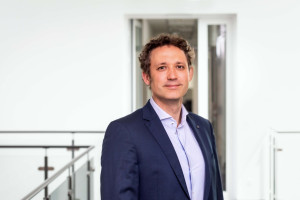
-
7th February 2025
The Less the Better
If neutrophil granulocytes migrate into injured tissue, for example into the brain after a stroke, they can promote chronic inflammation and cause long-term damage. In order to analyze the functional dynamics of these immune cells, millions of them are needed. A group of researchers recently developed a method that enables mass spectrometric analysis with just 1,000 neutrophils.
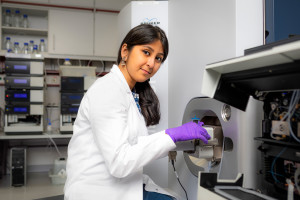
-
20th January 2025
Prolonged Health with a Compound Found in Mushrooms?
Is an active ingredient from shiitake or oyster mushrooms able to prolong ageing health? An international team of researchers led by Dr habil. Miloš Filipović has unravelled the mechanism of action of ergothioneine. The results show how the substance improves the health of ageing animals. A human study is currently being planned.

-
23rd April 2024
A cause of immunodeficiency identified
After a stroke or heart attack, the immune system of those affected is often impaired. This can lead to life-threatening infections. A team of researchers from the Faculty of Medicine at the University of Duisburg-Essen, Essen University Hospital and ISAS, has now discovered a previously unknown cause for the connection between stroke, heart attack and immunodeficiency. But that's not all: the team has also identified a new treatment approach.
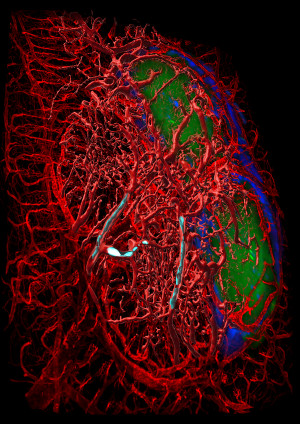
-
24th January 2024
EfficientBioAI: New Open-Source Software Makes AI Models Lighter and Greener
Artificial intelligence has become an integral part of research. However, the better and more complex the models become, the higher their energy consumption. Researchers at ISAS and Peking University have therefore developed ready-to-use and open software that compresses existing bioimaging AI models. With the help of the new toolbox, scientists can now run their models faster and with significantly lower energy consumption.
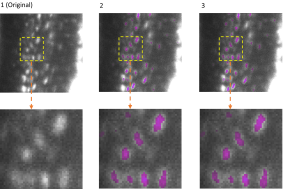
-
11th December 2023
ComplexEye & AI Enable Faster Migration Analysis of Immune Cells
How and where immune cells such as neutrophil granulocytes migrate, for instance whether they infiltrate tumours, is crucial for cancer patients. They could benefit from drugs that prevent this migration. Until now, the migration behaviour of immune cells could only be investigated using conventional video microscopy. However, researchers at the University of Duisburg-Essen and ISAS have now developed the ComplexEye. With their new microscope for the high-throughput analysis of drug substances, they are now able to analyse significantly higher numbers of neutrophils for their migration behaviour.
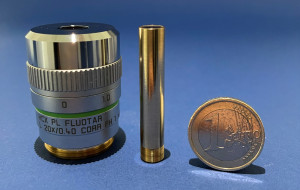
-
11th November 2022
Chan Zuckerberg Initiative Funds Two Projects from Dortmund
To extend the image analysis platform napari, Chan Zuckerberg Initiative is funding two projects of the ISAS research groups AMBIOM - Analysis of Microscopic BIOMedical Images and Spatial Metabolomics.
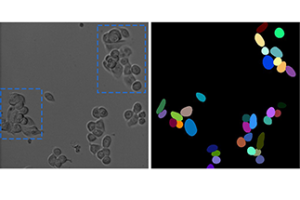
-
18th November 2021
Kristina Lorenz Wins Phoenix Prize
Prof. Dr. Kristina Lorenz and her team found a peptide agent against heart failure. For this achievment, Lorenz has been awarded the Phoenix Pharmacy Prize in the category "Pharmacology and Clinical Pharmacy".
